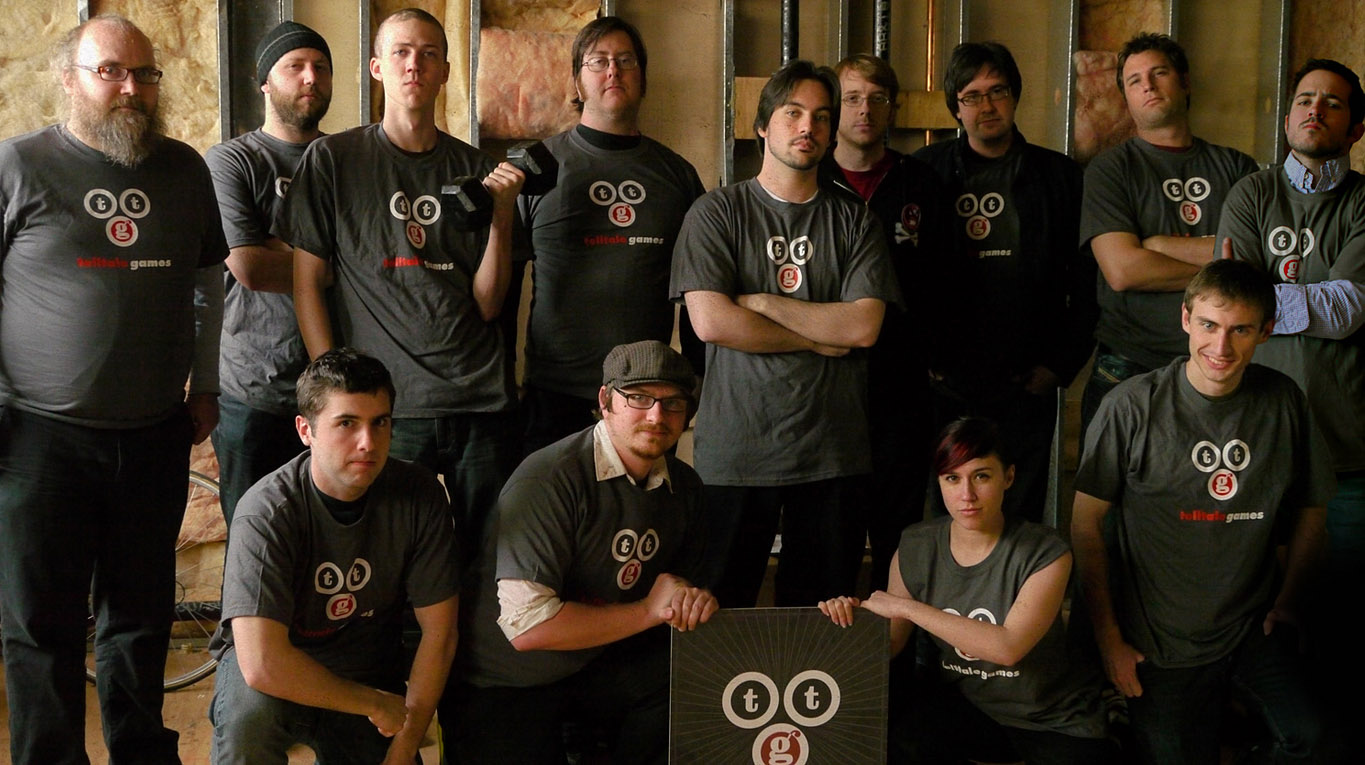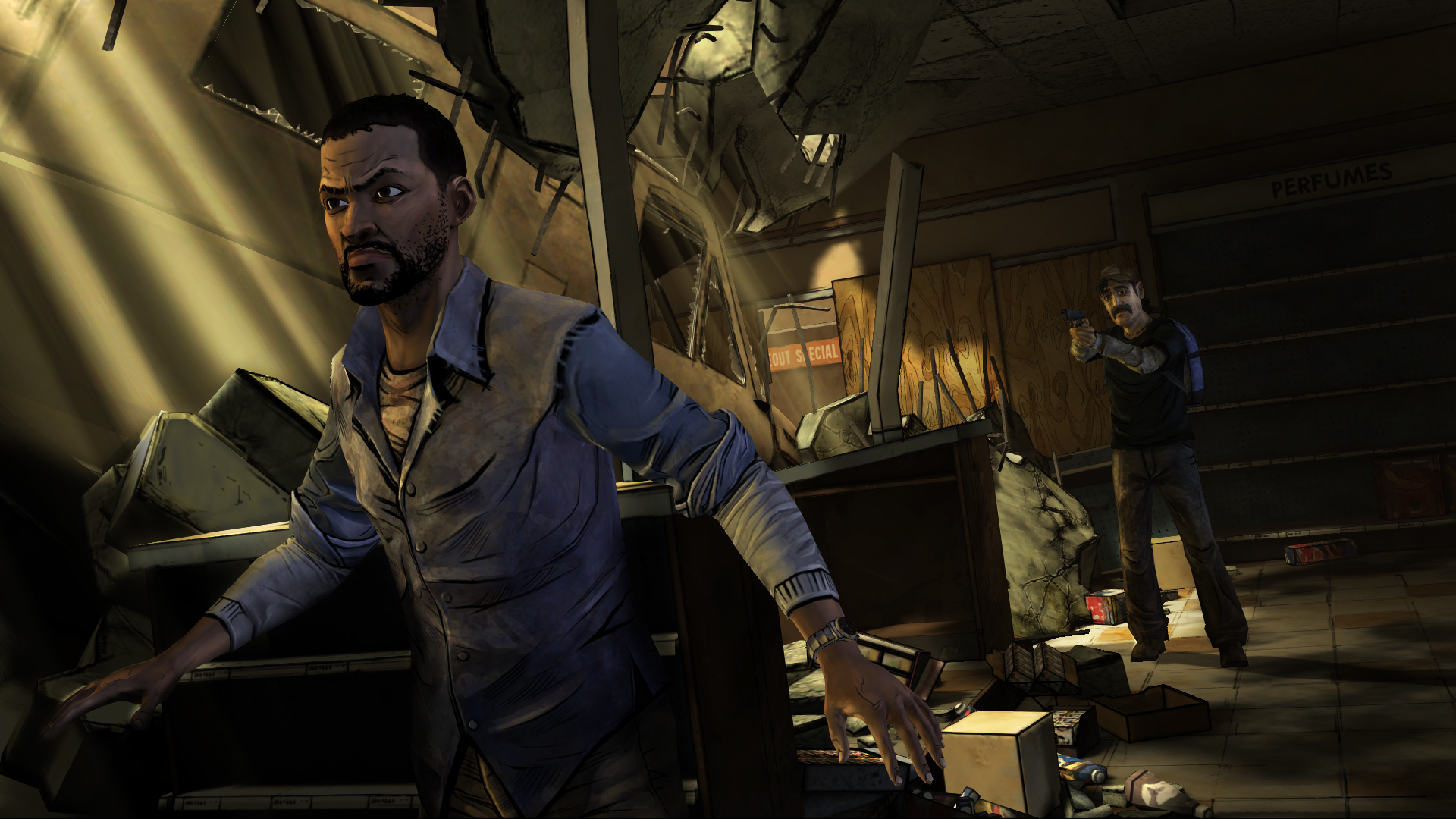It is believed that a single–player game with a good plot, designed for a single passage, as a phenomenon has not really caught on on mobile platforms. The experience of Telltale Games suggests the opposite. We decided to reflect on this topic.
There has long been an idea among the authors of App2Top to write a little material about the fact that a serious single (with a good plot and hardcore gameplay) on mobile platforms, even in the era of social farms and no less social puzzles, can be very successful. There were no reasons just to write about it. But recently it became known that the Telltale Games studio, founded in 2004 by LucasArts employees, is expanding. And this reason appeared.
Studio at the Telltale Seals games in 2010 So, on November 19, information was released that the studio, consisting of 125 people, will move to a new office in the next March-April, which is twice as large as the previous one.
In addition, according to an article by Jeff Quackenbush from the North Bay Business Journal, the company itself plans to expand. By the spring of 2013, its composition may increase by 40 people. And this despite the fact that the studio has doubled in the last two years.
What became the driver of the company’s growth, because it’s not just about the $15 million investments received relatively recently by Telltale Games from IDG Ventures SF and Granite Ventures (plus, it’s clear that investments are in most cases still a consequence of the successful development of the company, and not its cause). We tend to identify five approaches that have ensured the growth of the company and have been adopted by it since its foundation.
But first, a small remark: we understand that Telltale Games releases its projects on almost all gaming platforms, not counting products from Nintendo and on Android. Accordingly, the mobile market is far from the only and perhaps not the main source of its income. But she has been working on it for at least two years, and her last major project is the six–part horror Walking Dead: The Game – shows very good results in the App Store.
Five Approaches of Telltale Games:
1. Episodic format
In single-player games, as a rule, there is a huge amount of content. Small companies wishing to work in this direction do not have the means and opportunities to implement it. Releasing games by episodes, they can concentrate on creating a relatively small piece of work each time, and after its appearance on the market, if it makes a profit, immediately take up the next episode. And so, in small steps, create a big project.
Releasing the game in small fragments, it is easy, metaphorically speaking, to “go up”, to grow, because in this case it is possible to take into account the feedback received from users, take into account their wishes, work on those moments with which they were not satisfied.
The episodic format is ideal for mobile platforms, because, in fact, it turns the development of a single game into the work of a team on a full-fledged serial service. Here on the spot: regular updates for an additional fee, constant work on content, incessant work on errors both in already released episodes and taking into account blunders in the development of new series.
2. Work only under license
Since its first project – the serial quest Bone – Telltale Games preferred to work using IP. This allowed the company to reduce marketing costs, and also, roughly speaking, to get an audience from scratch that will definitely download/ buy at least the first episode.
The studio’s first game, Bone, was created based on Jeff Smith’s comic book series3. “Budget” or “pipeline” approach
The point is in the presence of a single toolkit (with a convenient editor), sharpened for a certain format (in this case, for a quest), which is developed once with an eye to a whole series of projects. The development of each game and each episode follows the same patterns – only the content changes.
This is a significant plus for level designers and screenwriters, because it allows them to create calmly within a certain framework. It also significantly reduces the budget of all future projects, and at the same time the risks. On the other hand, game designers are seriously limited in their capabilities: it is difficult to introduce something fundamentally new into the project due to the technical limitations of the engine. In addition, you can get tired of doing the same gameplay projects.
4. Focus on the plot
The disadvantages of the “conveyor” approach for the team should smooth out the plot, which is put at the forefront in Telltale Games projects. Thus, the game turns into something more than interactive entertainment. In addition, the plot, in fact, is what the project sells, which makes the user wait with bated breath and buy the next episode.
The latest game blockbuster of the studio is the horror drama The Walking DeadThe Game Insight company, which recently launched the NARR8 channel, follows the same pattern.
Only it hasn’t reached the games in this channel yet. So far, only animated comics, books and educational presentations. But, as stated in his interview Hopes & Fears NARR8 CEO Alexander Vashchenko, “then we will embed mini-games, parallel plot lines.”
5. Multiplatform
Everything is clear here: the more platforms your product is presented on, the larger the audience you will be able to embrace and earn more money.
And you know what’s important? Telltale Games does not just offer to buy the game by episodes, they say, I tried it, liked it, bought a third of the game, went through and bought more (or bought everything at once), as, for example, in the case of Symphonica from Square Enix or very cool, but made in the same format Ghost Trick. No, Telltale Games turns the whole thing into a real show.

GHOST TRICK: Phantom Detective from CAPCOM could show completely different results if it came out in episodes, and not immediately Excitement is created around each episode, trailers are released, you have to wait for it every time after the end of the previous series in the most interesting place.
This allows the company to grow, including in the mobile market.

And this means that a single, hardcore (okay, okay, moderately hardcore) single on mobile platforms is possible and promising, and the future is not only for social farms, PvP-battlers and casual games with short sessions.



